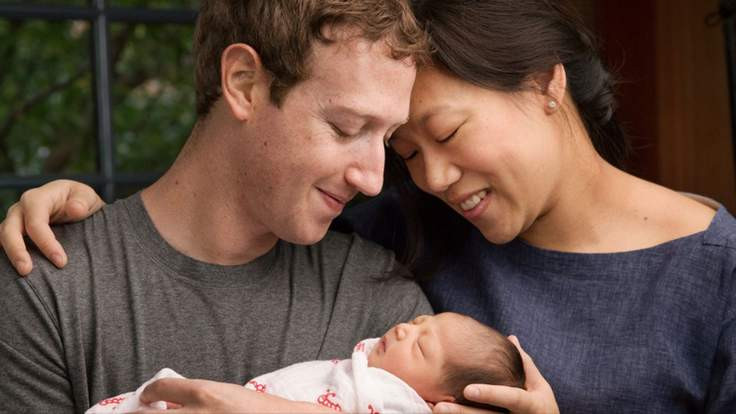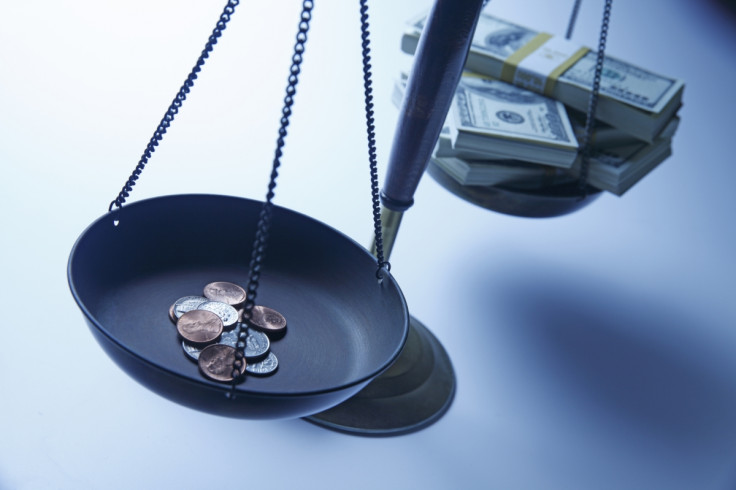Why can't all billionaires follow Mark Zuckerberg's example and give away their wealth?

Mark Zuckerberg has announced in a Facebook post (how else?) to his newly-born daughter that he will give away 99% of his shares to help make the world a better place for her to grow up in.
The donation, which stands at a current value of £30bn ($45bn), would go to help "advance human potential and promote equality for all children in the next generation," according to the post. Leaving aside morality issues of how Zuckerberg earned that money in the first place, it is nevertheless a grand gesture. It will, if managed correctly, undoubtedly go some way toward creating a better future for little Max Zuckerberg and others of her generation.
So why don't other multi-billionaires follow Zuckerberg's example and do the same? Easy to say, I know, but this isn't just one of those annoying, mindless soundbites like, 'why can't we all just get along?' or 'everything happens for a reason'. There are in fact several good reasons why they should.
Wealth inequality is at one of its highest points in the history of humankind. The world's richest 1% own just under half the world's wealth, according to Oxfam, a figure which is expected to rise to more than half by 2016, meaning they will soon own more than all the rest of us put together. Seeing as governments are seemingly unwilling or incapable of doing anything about this horrendous wealth gap, perhaps our only hope is that more billionaires will start giving it away. 'Conscious redistribution' we could perhaps call it.

Income inequality restricts economic growth
But there could be more compelling reasons for people of Zuckerberg's ilk to follow his example. According to reports by the IMF and the OECD and backed up by the views of prominent economists, income inequality actually restricts economic growth. In fact the OECD report went as far as to show that the UK would now be 20% better off if the gap between rich and poor hadn't widened since the 1980s. So giving away more of their money might not just be an altruistic act for billionaires. The whole growth-based economic system which helped create their wealth in the first place depends on the redistribution of some of their capital.
But perhaps there are even more selfish reasons why they should do so, reasons such as happiness or even self-preservation.
Money doesn't make you happy – another one of those annoying, mindless soundbites but also the findings of a study by two Nobel prize-winning economists from Princeton University. Or rather, money only makes you happier up to a cut-off point of £50,000 ($75,000) a year, after which it has no effect whatsoever on emotional wellbeing. This was a discovery that led Dan Price, the CEO of Seattle-based company, Gravity Payments, to donate 90% of his salary every year to bring his employees' incomes closer to that magic $75,000 figure. So if you're a plutocrat who's worried that your happiness might suffer from giving all that money away, don't be. Hand it all out and keep yourself on a modest £50,000 ($75,000)-a-year retainer. You know it makes sense.
Current levels of inequality are unsustainable
If that doesn't make sense maybe this does: give away your money OR YOU WILL DIE. That possibly sounds a bit melodramatic but it is exactly (kind of) the message of billionaire Nick Hanauer in his viral TED talk 'Beware, fellow plutocrats, the pitchforks are coming'. Hanauer makes the case that current levels of inequality are unsustainable, that they match levels of inequality in pre-revolutionary France (and we all know where that led to for the country's ruling class), and that they invariably lead to a violent overthrow of the status quo. Hence the pitchforks. Although, if he's so out of touch with the masses he thinks we'll be coming at him with medieval farming implements, I daresay he deserves it.
If the threat to one's own life isn't enough, perhaps the risk to our entire species will be, including all the little Zuckerbergs to come. Seeing as the richest 10% are responsible for 49% of the world's carbon emissions, according to a new report by Oxfam, surely the effort to halt climate change should be proportionate to that responsibility?
Let's give a middling estimate of the cost of a wind turbine at £1.6m ($2.5m) and take the richest 80 people in the world, who between them own £1.2trn ($1.9trn) according to Oxfam. If they each gave away 99% of their wealth to build wind turbines, that would be a whopping... well I can't be bothered to do the maths, but a hell of a lot of wind turbines, and probably enough to single-handedly keep us below the 20C global warming limit.
Okay, I'm being slightly whimsical but the point is still valid. Differentiation – the commitment to tackling climate change being proportional to those causing it – will be a hot topic in Paris over the next two weeks. If the world's plutocrats really want to bequeath a better planet to their offspring, there is no better or more crucial place to start. After all, how we tackle climate change will determine whether there is a habitable planet for them to inherit at all.
© Copyright IBTimes 2025. All rights reserved.






















